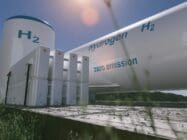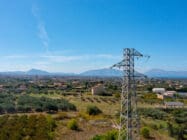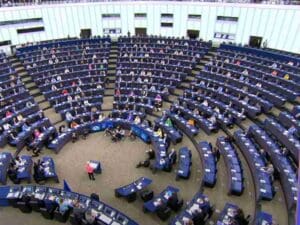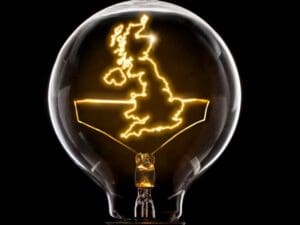
Chief executive woos Brussels audience with speech about ‘unbelievable energy sector‘
Audiences at energy conferences don’t often break out in a spontaneous round of applause, yet Catherine MacGregor of French energy company Engie got one this week at the Eurelectric Power Summit in Brussels.
The chief executive won cheers and applause after she delivered a passionate statement on why the energy industry is a great place to work.
“We are a super-attractive sector,” she said. “We are an unbelievable sector. We are going to transform the world for the better. For young people: where else would you go?”
She was taking part in a discussion highlighting how European utilities have been impacted by geopolitical events in the past year.
Asked how long she believed the turbulence in the market would continue, she said that “tensions and volatility might stay until 2026 and 2027”.
Yet she stressed that helping to stabilise the sector – and in turn accelerate the transition to cleaner, secure and affordable energy – was in the hands of the industry itself.
“We are a bit stuck in our own arguments and debates,” she said. “We need to unleash more positive energy.”
Have you read:
“I’m dismayed at the discussion about AI in Europe” says E.ON chief
EUSEW: Research report finds heat pumps booming
Earlier this month, MacGregor unveiled Engie’s 2050 energy scenario for Europe. It had seven key action points:
- All current levers and those under development must be activated to make “Net zero emissions” a reality in under 30 years.
- To meet European climate commitments, there is a need to step up efforts on energy conservation and energy efficiency, with the aim of achieving a 34% reduction in energy consumption by 2050.
- A very significant acceleration in the growth of renewable energies, primarily electric (wind and solar power) is essential to reach European climate targets and limit costs.
- Flexibility technologies (battery storage, pumped storage, combined-cycle gas turbines) will play a central role in the energy system in the context of the growth of renewable energies. Additional capacity of 600GW must be developed (a circa 4-fold increase on current capacity).
- Methane will be fully decarbonized by 2050 and will play a key role in the energy transition. The demand for methane will be halved in France and in the rest of Europe. In France, biomethane will play a dominant role, accounting for 2/3 of demand in 2050. The biomass potential in France is sufficient to cover the need for solid, liquid and gaseous biofuels.
- Decarbonized hydrogen and molecules produced from hydrogen (e-molecules) will play a key role in transports and for certain industrial uses. Demand for hydrogen and e-molecules – driven by the need to decarbonize heavy-duty transport and industry – will increase 8-fold by 2050 (75% for transport and 25% for the industrial sectors most difficult to decarbonize, such as steel). Almost half of this hydrogen will be produced locally.
- Investment in electricity infrastructures will increase massively, while existing gas infrastructures can be adapted to a totally carbon-free energy mix at limited cost. Minimising the cost of the energy transition, they meet the challenges of peak demand and energy system flexibility.
Also of interest:
Upskilling key to getting us out of the woods – EUSEW
Five lessons from the energy crisis in Europe
At the launch of the scenario, MacGregor said: “The magnitude and urgency of the energy transition makes it an unprecedented challenge for Europe.
“At a time when the debate on energy planning is gaining traction in Europe, we wanted to share our convictions on what we believe to be the most realistic pathway.
“A successful transition means achieving net zero carbon while ensuring that the cost to citizens and businesses is kept under control, developing a robust and reliable energy system.
“To achieve this, we are convinced of the need to exploit all levers for decarbonization. The combination of the molecule and the electron is the answer to these challenges on a national and European scale.”








